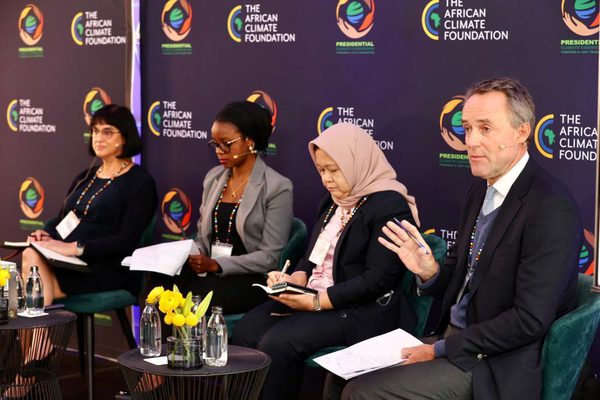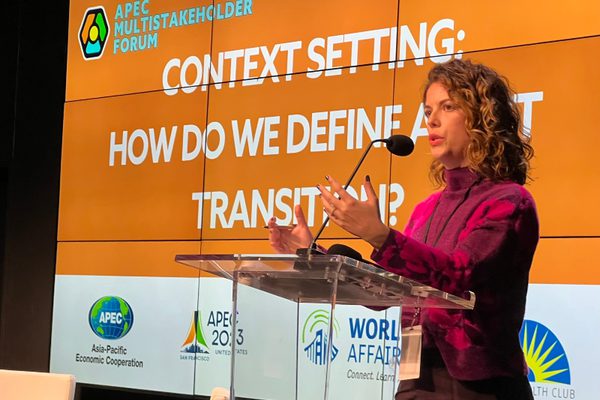The 'J' in 'JETP'
Just Energy Transition Partnerships are fast becoming a go-to model for national-level decarbonisation initiatives. Here, we analyse the human rights risks and social opportunities associated with private sector involvement in JETPs.

Summary
- Analysis of lessons learned from South Africa’s JETP have focused largely on the public finance dimensions of JETP formulation and technical initiation. However, it will be the private sector that ultimately delivers each JETP in the medium and long-term, both in terms of financing and industrial systems change.
- The project aims to map and analyse private sector social standards and actors across the JETP value chain.
- The research aims to provide clarity over how the social elements of private sector involvement in JETPs are understood, designed, and engaged upon to ensure the social sustainability of JETPs supports efficient and effective climate action.
Background
International partnerships and catalytic climate finance deals called Just Energy Transition Partnerships (JETPs) are fast becoming the go-to model for national-level decarbonisation initiatives. South Africa has led the way, negotiating an $8.5 billion deal in 2021 with an International Partner Group (IPG) of donor governments (France, Germany, the UK, USA, and European Union) to catalyse the first five years of its highly complex industrial transformation to net-zero by 2050. Several other countries have also begun emulating South Africa’s approach to negotiate their own decarbonisation deals, in particular Indonesia, Vietnam, and now Senegal (expanding the roster of IPG donor countries to include Japan, Canada, Italy, and Norway).
JETPs are new and untested models with implications for national populations. We are already seeing a lack of internal and external coherence in the way various national policy makers across the JETP countries are defining and understanding the “just” dimensions of just transitions, as well as the challenges in practice of ensuring transparency and meaningful stakeholder engagement during the early-stage negotiations of a JETP investment plan.
A key gap lies within the early-stage analytical landscape relates to the social and human rights responsibilities of the private sector actors who will be central to the implementation of national JETP investment plans in the medium- to long-term.
Research aims and outcomes
National and local civil society, worker, and indigenous communities are more aware of how the private sector ecosystem operates and better able to hold these actors as well as their own governments to account.
Through desk research, case analysis, expert interviews, and multi stakeholder dialogue, this project will:
- Provide clarity over how the social elements of private sector involvement in JETPs are understood, designed, and engaged upon to ensure the social sustainability of JETPs supports efficient and effective climate action.
- Provide greater comparability and consistency in assessing national-level decarbonisation efforts on what the “J” in “JETP” means in practice, and a foundation for driving greater monitoring, engagement, and accountability across JETP’s globally.
- Provide a more coherent ecosystem of private sector engagement that is incentivised to produce just and equitable outcomes from JETP investments, in concert with public and philanthropic efforts to date.
Who is this research relevant to?
- Companies – particularly domestic and international companies investing in South Africa’s energy sector.
- Investors, banks, and other domestic and international financial actors.
- Governments and intergovernmental organisations shaping energy transition planning.
- Local and international civil society organisations concerned with the social implications of climate action in South Africa and other JETP countries.
Project activities
- Standards Mapping: Mapping and analysing key private sector standards (national and international) governing the energy transition in terms of their social and human rights content/criteria.
- Systems Mapping: Mapping and analysing the key private sector actors and relationships involved in South Africa’s JETP delivery.
- Narrative Report: Packaging the analysis into an accessible report with recommendations for how to meaningfully strengthen the “J” in JETP as it relates to private sector roles and responsibilities.
Research Download
Related

Just Energy Transition Partnerships (JETPs) - what are they and why do they matter?
Read more
Businesses need more guidance on how to advance 'just' transitions - South Africa offers significant lessons
Read more
What are JETPs? (Just Energy Transition Partnerships)
Read more
One Year On – 5 Takeaways from South Africa’s Just Energy Transition Partnership (JETP)
Read more
Working Through a Just Transition - APEC Economic Leaders' Week
Read moreTeam
Meet the project team and learn about their expertise.

